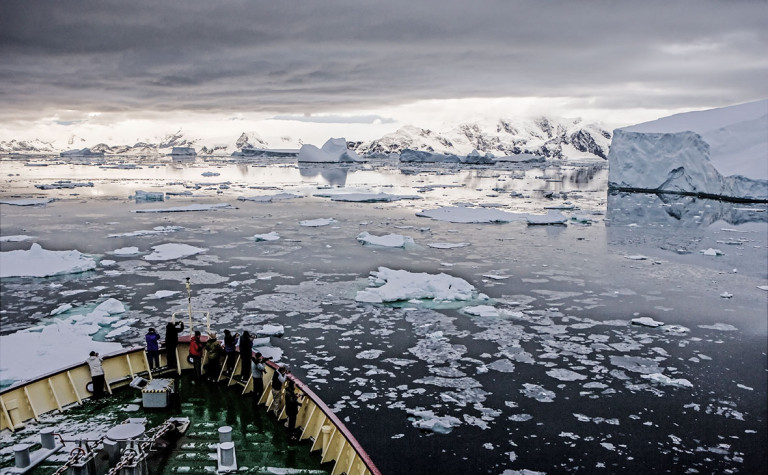
Siberian River Diversion to Central Asia May Finally Be Coming
Siberian River Diversion to Central Asia May Finally Be Coming
Executive Summary:
- Central Asians have long called for Russia to divert water from Siberian rivers to help them address water shortages, which are a result of rising demand and global warming.
- These calls have been rebuffed because Russians have feared that it would harm their country, but this is changing because global warming also means that Russia has too much water flowing through these rivers to avoid massive flooding.
- Russians are increasingly convinced that sending water to Central Asia will win friends, stave off geopolitical competitors, and earn Moscow money despite any such project being hugely expensive and taking years to complete.
Central Asians have long called for Russia to divert water from Siberian rivers to help them respond to water shortages. Such appeals have intensified in recent years due to the rising demand for water and global warming (Qmonitor, August 21, 2023; Akcent.site, March 4; IrkuskMedia, March 7; Centrasia.org, March 27). Moscow has rejected these appeals, however, because many Russians fear that such a dispatch of Siberian river water south would harm Russia. These concerns are largely due to memories of how debates about river division undermined the Gorbachev regime, even though it ultimately rejected that plan (Window on Eurasia, July 17, 2024). Now, the apparent roadblock is breaking down less because of Central Asian needs than because global warming means that there is too much water flowing into Siberian rivers, causing massive flooding across Russia. As a result, an increasing number of Russians now appear to believe that diverting water to Central Asia is an effective way to protect Russia from such disasters in the future (Voenno-politicheskaya analitika, June 16, 2022; Nezavisimaya Gazeta, February 25).
There are other reasons why Russians appear to be changing their minds. Many view such a project as a means to keep Central Asia within Moscow’s orbit and to counter geopolitical competitors, including the People’s Republic of China (PRC), as well as a way to generate revenue for Russia (Nezavisimaya Gazeta, January 29, 2023). This is especially the case now that those advocating for Siberian river diversion are calling for the use of pipelines rather than canals, from which there would have been massive losses due to evaporation and filtration during transit (Window on Eurasia, May 16, 2019). As a result, what most observers had thought was an impossible dream is increasingly becoming the subject of practical discussions. The enormous costs of such a project, combined with residual Russian opposition, however, likely mean that it would take many years before any Siberian river water reaches Central Asia.
For more than a century, Central Asians have advocated for Russia to divert Siberian river water south to their region to support their growing population. Such calls have intensified in recent years because of global warming. Russians have consistently blocked these calls, however, fearing that such projects would harm Russia itself and that their enormous costs could never be recouped. Now, more Russian experts and even some Russian politicians have begun to change their minds, not so much because of the appeals of the Central Asians, but because of the needs and opportunities that Siberian river diversion would present to Russia itself.
Mikhail Zelikhanov and Stanislav Stepanov, two leading experts at the Russian Academy of Sciences, have outlined the reasons behind this shift in Russian policy (Nezavisimaya Gazeta, February 25). First, they say, global warming has not only affected Central Asia but also the Russian Federation, where it has resulted in the amount of water flowing into Siberian rivers reaching a point where they are flooding Russian cities along their banks on a regular basis. The effects of such flooding and the cost of rebuilding after such disasters make the costs of Siberian river diversion seem relatively small in comparison (Nezavisimaya Gazeta, February 25).
Second, the two Academy of Sciences scholars argue that Russian technology has advanced to the point where any water shifted from Siberia to Central Asia can be transported through pipelines rather than canals, limiting the amount lost due to filtration and evaporation over waterways that would be more than 2,000 kilometers (1,242 miles) long. They point to the extensive system of gas and oil pipelines that Russia has established over the last several decades as evidence of that (Nezavisimaya Gazeta, February 25). That, in turn, means that less water would need to be pumped and fewer nuclear power plants would be required to make the system operational, two issues that opponents of Siberian river diversion in the past have often used to justify their position and oppose such proposals.
Third, Zelikhanov and Stepanov suggest that diverting Siberian river water southward would bring Russia real geo-economic and geopolitical advantages. This would earn Russia money from Central Asians who could be compelled to pay for it, as well as from the PRC and other countries further afield that also need water. This would win friends among Central Asians and thus stave off the growing influence of outside powers. Such outcomes would help solidify Russian President Vladimir Putin’s “turn to the east” (Nezavisimaya Gazeta, February 25).
Two developments in recent months have added urgency both to Central Asian calls for Siberian river diversion and Russian interest in supporting such a project. First, Afghanistan is nearing completion of a dam and reservoir system in the northern part of the country that will reduce the amount of water flowing into Central Asia (see EDM, March 7, July 11, 2024, February 10). Some analysts in the region and Moscow say that this development may spark a military conflict given how many people will face water shortages if nothing is done (Stan Radar, March 26). Second, some Russians fear that Central Asians, possibly with PRC assistance, are now taking steps that will force Moscow’s hand. This would significantly reduce Russia’s freedom of action regarding river diversion, the longer a decision to proceed is put off. Specifically, they point to a Kazakh plan to divert water from flowing northward into Russia, which would harm border regions, despite potentially benefiting Kazakhstan and the PRC (Voenno-politicheskaya analitika, March 1). Additionally, Moscow has been at pains to point out to the Kazakhs that their water problems are the result of PRC policies rather than Russian ones (Window on Eurasia, August 4, 2021, January 12, 2022).
Large numbers in Moscow remain unalterably opposed to the idea, fearing that any loss of water would undermine their nation’s future, despite the appearance of additional Russian support for Siberian river diversion. They are repeating the arguments opponents offered 40 or more years ago, adding that Central Asians would not need the water if they were more careful in its use, especially if they replaced canals with pipelines, something that Russia could help them with and would win them friends at a far lower cost. The use of Russian-produced and installed pipelines would limit the evaporation and filtration that now plague the region’s irrigation systems (Uzmetronom.com, January 31, 2024).
No decision in Moscow on Siberian river diversion is likely before Putin’s war against Ukraine winds down. Moscow simply lacks the necessary funds to launch and complete this project, let alone do so without external assistance. The PRC might do so for its own needs, but it will not as long as Beijing faces the threat of sanctions for cooperating with Russia. Any such delay, however, will not quiet the debate about it. That debate is now trending in a significantly different direction than in the past, which means that Siberian river diversion is no longer the impossible dream many have assumed it to be.


